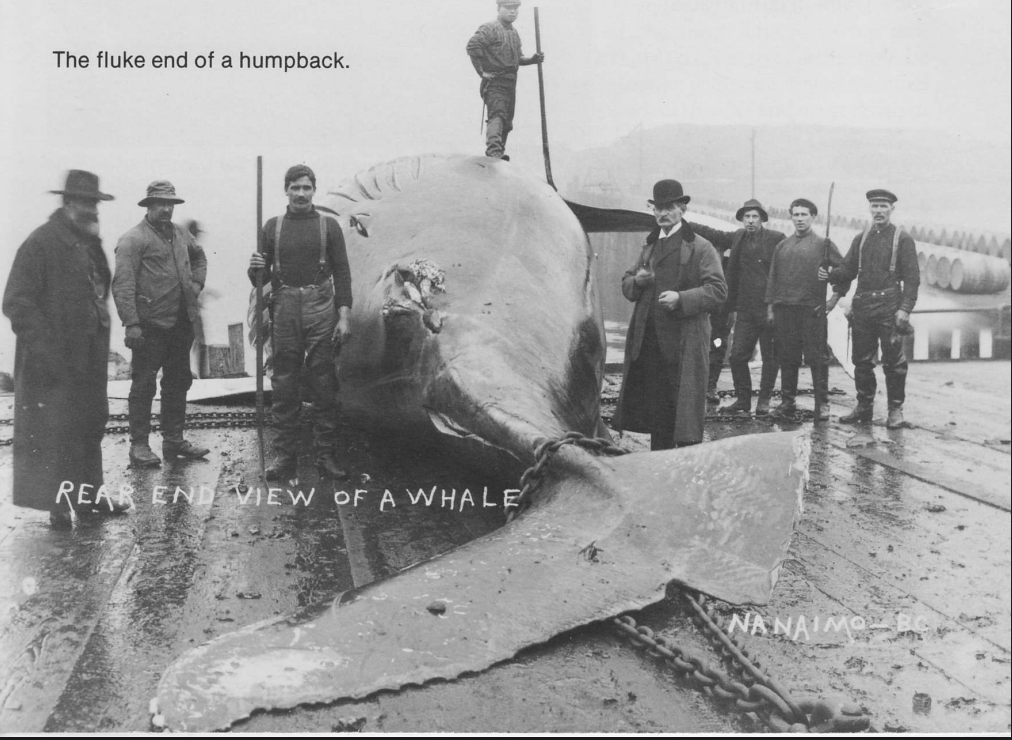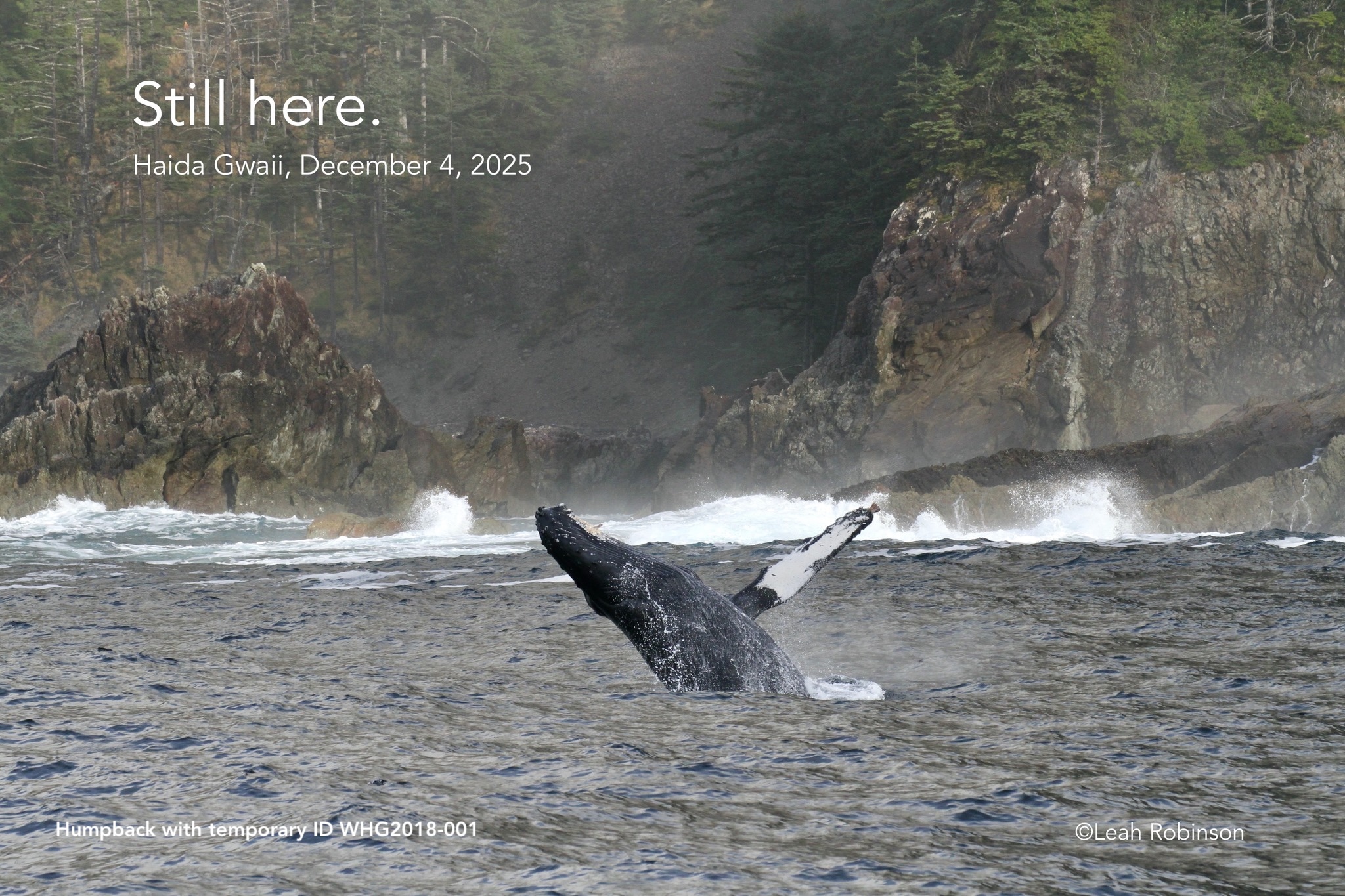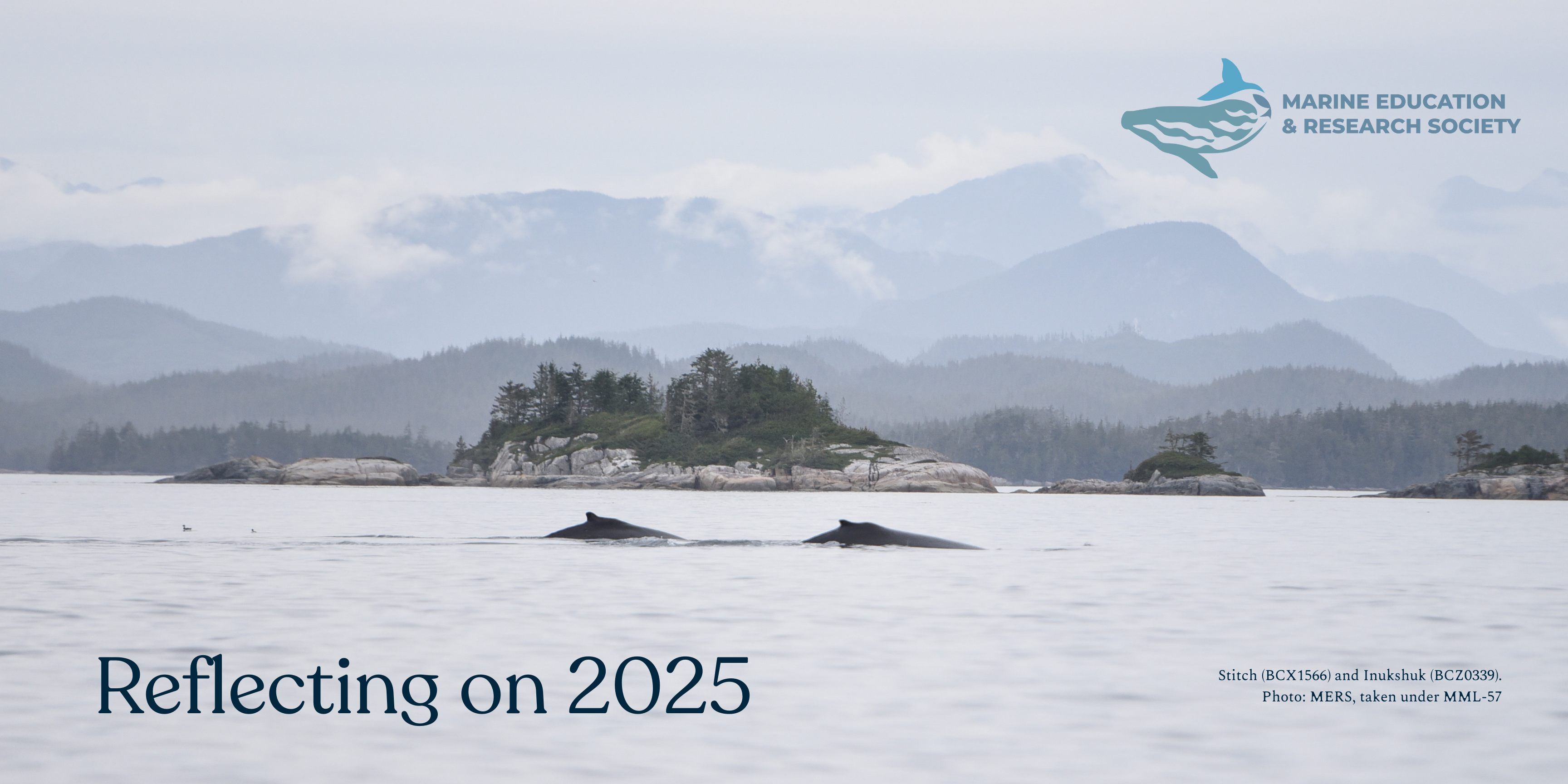Last update: January 14, 2026
Why this information is being provided about interactions between Humpback Whales and vessels, sometimes referred to as “mugging”:
1) As background for boaters to better understand these interactions, the associated risks to whales and boaters, and the importance of avoiding such encounters.
2) Because of concerns about the ethics of promoting such encounters.
3) Because we are keeping track of which Humpbacks do this and under which circumstances. Data contributions help with further understanding these interactions and their impacts. Please click here to contribute data.
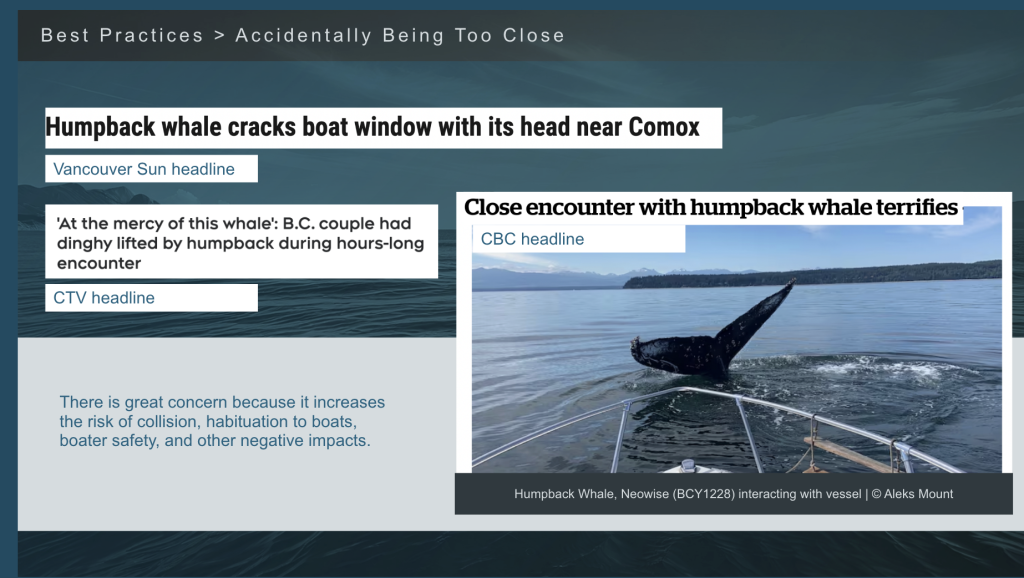
Humpbacks can be astoundingly oblivious of boats, especially when feeding or resting. But there are times when some individuals occasionally interact with boats. Both cases have the potential for extreme risk to the whales, and to boaters.
Why are there interactions like this? And, what are the best practices for boaters / tour operators when this happens?
We strive to document these interactions and which individuals are involved. It appears such interactions may be more likely when the whales are socializing with one another. When not directed at feeding or resting, they interact “interesting” things in their environment like sticks, kelp, and even large jellyfish.
Is habituation a factor?
It may be that some Humpbacks have had previous encounters with boats which perpetuates these interactions. It is known that the interactive whale watching practices in Mexico with Grey Whales (not Humpbacks) contributes to habituation to baots and the greater likelihood that some Grey Whales will also approach boats when off the coast of British Columbia.
It certainly is a concern that with each boat interaction between Humpbacks and vessels, the behaviour may be reinforced and that this increases the risk of collision.
But human behaviour is of course also a concern. Many boaters do not know about the increase of Humpbacks we are so fortunate to have off the coast of British Columbia and just how unpredictable this large whale species can be.
Risk of collision is increased if boaters believe that Humpbacks always know where vessels are.
Baleen whales like Humpbacks do not have the biosonar that toothed whales have. They can surface suddenly after long dives, can become highly acrobatic, are often travelling in random patterns, and can be oblivious of boats.
Risk of collision (and habituation) is also increased if the promotion of such interactions leads to increased demand/expectation for close encounters with whales.
The sampling below gives a sense of the human injuries and material damage resulting from collisions with Humpbacks.
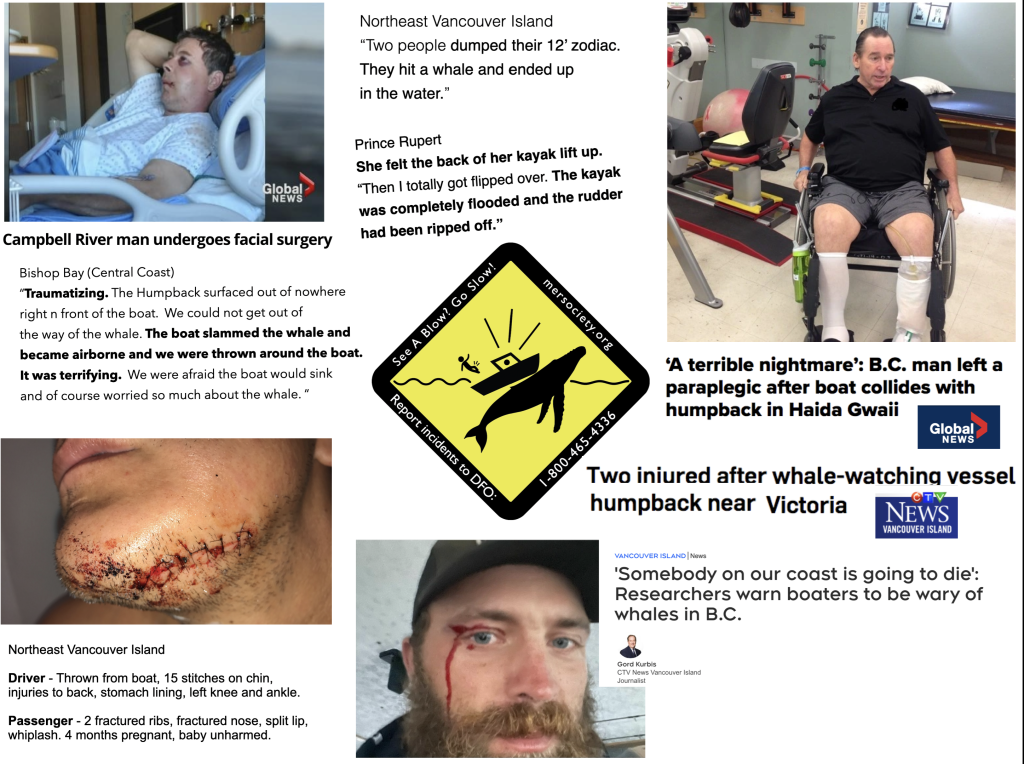
What to do if Humpbacks interact with a boat, despite all attempts not to put the whales at risk and contribute to their habituation?
The following text is from our free, online Whale-Safe Boating course:
Whales like Humpbacks will also sometimes interact with vessels. This is sometimes referred to as “mugging”. There is great concern about this because it increases the risk of collision, habituation to boats, boater safety, and other negative impacts. Such boat interactions appear more likely to occur when Humpbacks are not feeding or resting. The whales interact with boats as they would with other “interesting” things in their environment, for example, kelp and sticks. If you are caught off guard and a Humpback interacts with your boat, do not move your vessel, put your engine in neutral, and keep your engine down in the interest of boater safety and vessel stability. Be quiet and do not make sudden movements. A reminder too that it is illegal to touch a marine mammal.
If the whale touches your vessel, this is perceived as “contact” under the Marine Mammal Regulations and must be reported to Fisheries and Oceans Canada via the Marine Mammal Incident Reporting Hotline at 1-800-465-4336; DFO.ORR-ONS.MPO@dfo-mpo.gc.ca.
How often do the whales die as a result of collision?
Dead whales most often sink to the ocean bottom so this is not known.
Click here for the North Island Marine Mammal Stewardship’s guide: “Strategies for Preventing and
Mitigating Mugging Whale Encounters.“
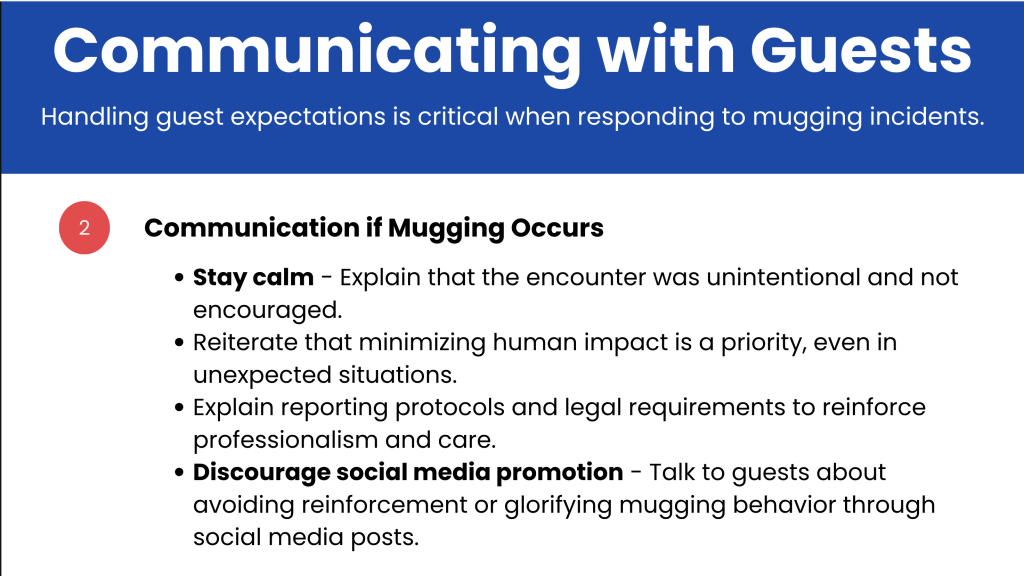
The North Island Marine Mammal Stewardship Association’s code of conduct includes not promoting imagery of whales in close association with vessels.
NIMMSA Viewing Guidelines include:
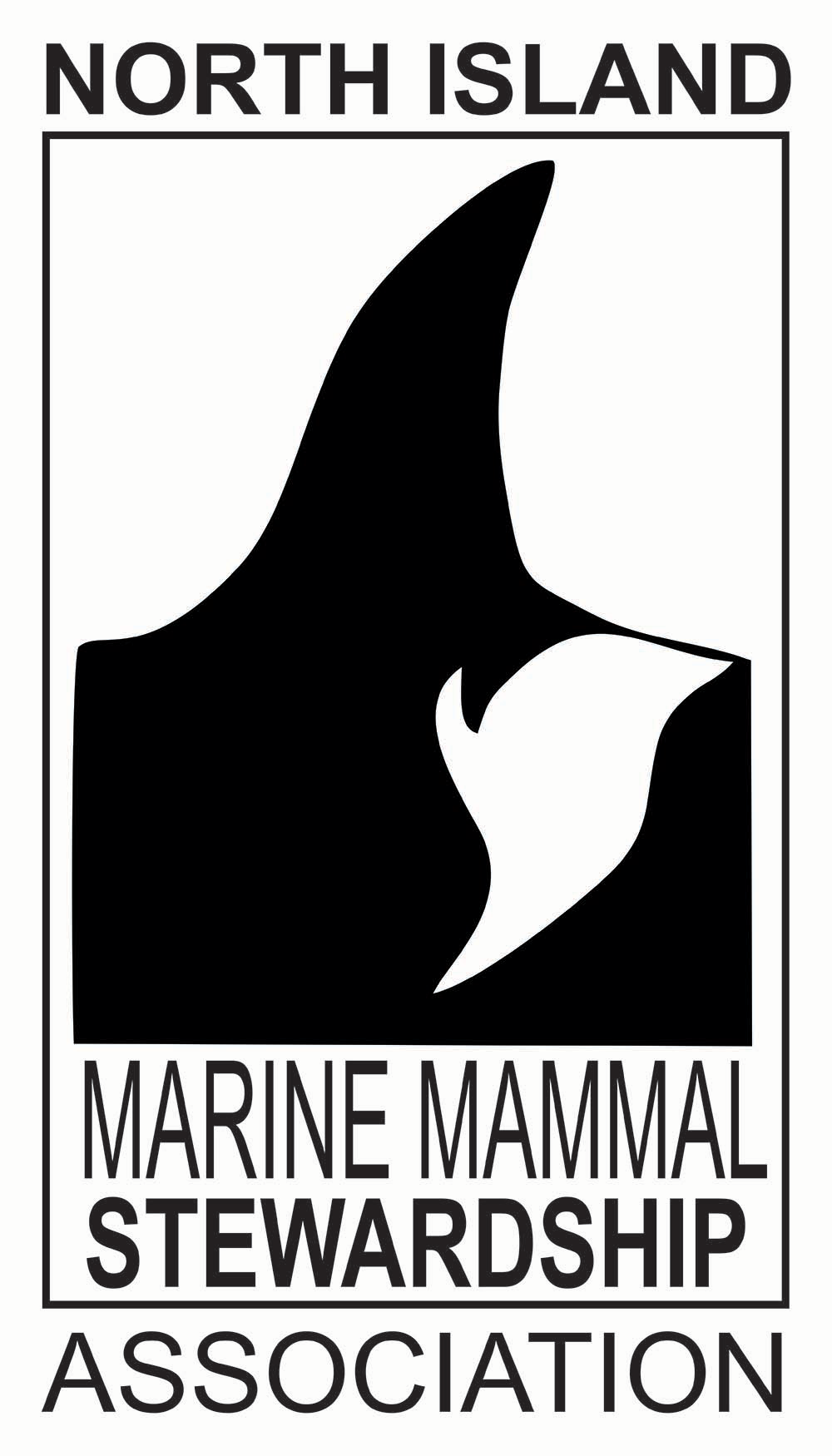
“Keep a distance of at least 200 metres if any whale shows signs of trauma, stress, labour, unfamiliar behavior, habituation towards people or vessels, or the need for extra space.
If a whale approaches a vessel (regionally known as “mugging”) the vessel should turn off their engines and wait for the whale to move outside of 100m. If a vessel captain is aware of another vessel being “mugged” or a whale in the area that is known for mugging vessels, the captain should avoid the area.”
NIMMSA Marketing and Social Media Guidelines:
“As stewards, it is important NIMMSA members set realistic marine mammal viewing expectations and educate others on best marine mammal viewing practices. To help achieve this NIMMSA members are expected to follow the below marketing and social media guidelines.
- Only use images or video in marketing material and on social media that reflects responsible marine mammal viewing in line with this Code of Conduct.
- Educate clients on the importance of responsible marine mammal viewing and encourage them to only post images or video to social media that reflect operations in line with this Code of Conduct.”
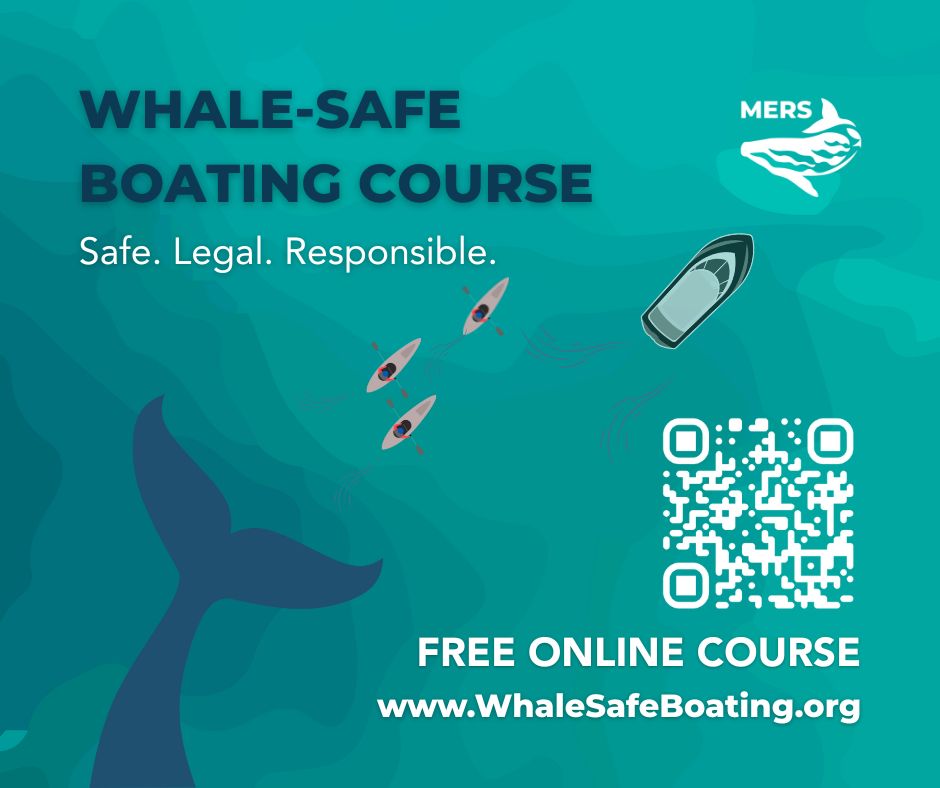
For details on ethical practices regarding the promotion of marine mammal encounters, please see our resource “Media Matters” at this link.
